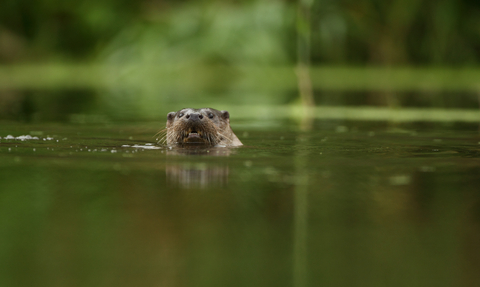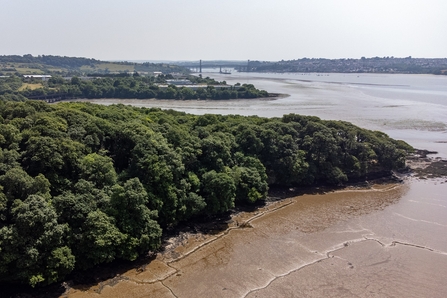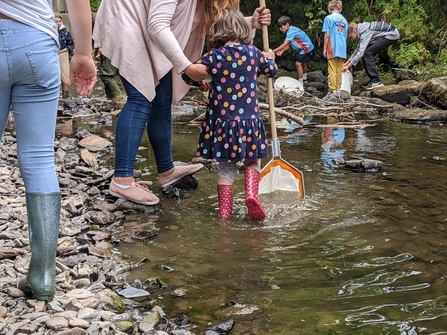
Luke Massey
The River Plym Project
Communities at the heart of restoring the River Plym
The River Plym flows from Dartmoor, to Plymouth, and into the sea. By connecting with the people who live and work alongside the Plym, this project aims to encourage people to value and enjoy the nature on their doorstep, to create more space for wildlife and ultimately restore the river's health.
This 8-month project looked to understand how local communities currently engage with the River Plym. We worked with communities along the catchment of the river - from businesses, to homeowners, community groups and informal networks who connect with the river. We wanted to raise awareness of what is so special about the River Plym, the problems it faces, and how people can get involved to take positive action to improve the health of the river.
The River Plym Project was a partnership project between Barbican Theatre Plymouth, Devon Wildlife Trust, and Plymouth Sound National Marine Park. The project was kindly funded by Esmée Fairbairn Foundation.

Sam Rose
The history of the River Plym
The River Plym rises on the deep peatlands of Dartmoor and travels 15 miles through moors, dense temperate rainforests, and urban landscapes, spilling into the sea at Plymouth Sound. The river connects our most highly protected sites, both on land and in the sea, allowing wildlife to travel more easily between these important areas.
Through history, and despite more recent regulation, human activities have left a lasting impact on the river's health and its wonderful watery wildlife. For example, pollution has reduced water quality, and changes to the natural flow of the river has affected wildlife and the habitats it depends on for survival.
However, there is hope. The River Tamar, sister to the River Plym, has seen multiple projects and programmes to restore the river's health, and has received many special designations and flagship status.

How were communities involved?
Barbican Theatre, supported by River Plym Project partners, organised a range of community workshops, outreach projects and surveys during 2024. Each workshop aimed to raise awareness of wildlife in the river, get people thinking about the issues of River Rights, and culminated with the creation of an artwork. At the end of August 2024, a weekend of celebration at the Barbican Theatre showcased poetry, dance and the unveiling of a tapestry of over 30 artworks created by a diverse range of community groups.
We wanted to investigate:
- The idea of giving ‘control’ back to nature, while inspiring multiple generations to respect and care for the river
- who is leading the way in the UK and Worldwide on river rights and how can we learn from them
- what legal precedent is there for a Phase 2 project to build on
- where does water have the right to flow?
What’s next?
The project partners intend to plan and apply for funding for a further multi-year project as a consequence of this research phase, which will approach the idea of the River Plym as a citizen.
What the partners say
Our rivers and wetlands are much more than stunning places to visit. They are the lifeblood of our treasured ecosystems and support our life on earth. As we continue to witness the many challenges our rivers face, we must explore new ways of ensuring they have a resilient future. This is a groundbreaking project which, with community support, we hope will lead rivers having rights, which will guarantee they can thrive for generations to come.
One question that local people were keen to debate was, ‘who can speak up for the river and its wildlife, when it’s unable to do so itself?’ This is where local communities who know and love the river, and understand its value to biodiversity, as well as the health and wellbeing of the people who visit the river, can provide community leadership and take positive action.
This project is very close to my heart. Changing the way, we treat our rivers is a vital part of our efforts to restore nature.





